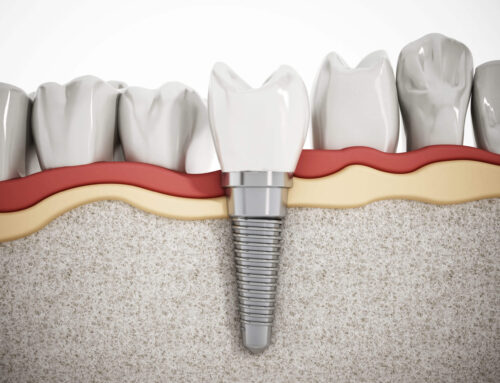Gingivitis is a condition where the gums become inflamed. This most often caused due to the build-up of plaque on the teeth, and specifically to the bacteria that grow and live on the plaque. Less commonly, gingivitis can develop for other reasons; these may include hormonal changes, and trauma to the gums, such as chewing on very hard foods, or foods with sharp points. The inflamed gum will often bleed when the teeth are being brushed. Taking steps to help with gingivitis prevention will result in healthier teeth and gums.
It is important to understand that gingivitis is not the same thing as gum disease, but is very often a precursor to it. If one does not try gingivitis prevention techniques, and then fails to seek treatment when the condition arises, that person is prone to develop fully-fledged gum disease, known as periodontitis.
Gingivitis Prevention
Using proper dental hygiene techniques is the best way to avoid the occurrence of gingivitis. Every Individual should brush their teeth thoroughly, at least twice a day, and should also use dental tape or dental floss to get a deep clean between the teeth.  For older individuals, a dentist or oral hygienist may suggest other ways of cleaning thoroughly between teeth.
It is also advisable to visit a dentist to have teeth checked every six months. Regular visits to the dentist mean that problems are spotted early, before they become serious.
Individuals should ask their dentist to show the proper technique for brushing teeth. Exerting too much pressure while brushing can irritate the gum, causing gingivitis. A bad technique may also make brushing ineffective at removing all the bacterial buildup. A dentist may suggest using disclosing tablets so that individuals can see how thorough their cleaning technique is.
Even if a dentist detects no problems that need treatment, he or she will normally suggest that having teeth cleaned to remove plaque and tartar. Even those who are diligent in their daily dental hygiene will almost always discover a small build-up of plaque and tartar over time. Dentist and oral specialists will have the equipment necessary to remove the plaque and tartar, reducing the risk of developing gingivitis.
How do I know if I have gingivitis?
Gingivitis is a term that refers to inflamed gums. If gums feel tender when brushing teeth, there is a good chance that gingivitis has developed. Note that the tenderness is often confined to quite a small area on the upper or lower gum, and does not often affect the entire gum.
If one see traces of blood on a toothbrush, or when spitting out after cleaning, that is an indication one may have gingivitis. Other indications are swollen gums or when the gums have a purplish color.
However, any of these symptoms could be caused by other, more serious conditions. If you notice any of these symptoms and they last for more than a few days, you should arrange to see your dentist. This will help with gingivitis prevention, and prevention of other dental ailments.
If you’d like more information on gingivitis or any other gum, oral or tooth problems, contact OMSH today!






